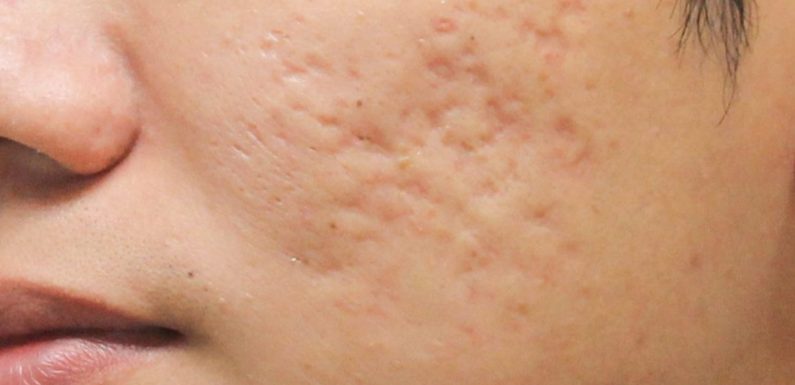
Acne is a prevalent skin disorder that affects over 80% of people between the ages of 11 and 30. It might appear on the face, chest, back, or shoulders. It may appear that the annoyance will never go away, but it will. You’ll be able to cope with any remaining scars once it’s gone.
Consult a dermatologist as your first line of protection. They’ll start by focusing on clearing up your acne. You’ll have fewer scars if you have fewer breakouts. Acne scars aren’t necessarily permanent, which is excellent news.
When a breakout works its way deep into the skin and destroys the tissues beneath it, scars occur.
It’s critical to identify the type of scar you have before trying out acne scar treatments. Therapies respond differently to each kind, and some acne scar treatments are better for certain types than others.
Atrophic or Depressed Scars
The face is the most prevalent site for atrophic scars. A depressed scar is visible underneath the surface of the skin. They occur when not enough collagen is produced during the healing process of a wound. There are three types of atrophic scars:
Boxcar
The scars are large and U-shaped, with sharp edges. They can be found in a variety of depths, from shallow to deep. The shallower they are, the better they react to skin resurfacing treatments.
Ice pick
Small, V-shaped scars that can pierce the skin deeply are known as ice pick scars. They resemble a chickenpox scar and have the appearance of small round or oval holes. These scars are the most difficult to treat since they can extend much beyond the skin’s surface.
Rolling
Large depressions with rounded edges and a sloping, rolling appearance.
Hypertrophic or raised scars
Treatment for acne scars on the chest and back is the most common. They’re caused by too much collagen during healing, and they rise beyond the surrounding skin’s surface.
Dark spots
A scar is a discoloration left behind after a pimple has healed. The purple, red, or brown marks will vanish on their own after a few months.
There are several things you may take to lower your chances of developing acne scars:
- Don’t start smoking or quit smoking.
- Keep your hands out of your eyes and away from your face. Refrain from picking or squeezing your pimples.
- To lessen the risk of scarring, treat your acne as soon as feasible.
Rejuran S Acne Scar Treatment
Rejuran S is a stronger version of Rejuran Healer that was created specifically for the treatment of acne scars. Polynucleotides (PN) are DNA fragments that aid in the healing of damaged cells and the stimulation of collagen production.
It’s good for treating acne scars because of its ability to speed up skin healing and restructure collagen. It also promotes tissue regeneration, repair, and scar improvement. It’s ideal for acne scars that have become depressed. Moreover, Rejuran S can effectively heal a variety of acne scars, including:
- Boxcar Scars
- Icepick Scars
- Rolling Scars
Acne scars can be aggravating, but some therapies can help them fade away. Although most scars are permanent, a healthcare expert can assist you in finding the best treatment to help minimize their appearance.
To sum up, The best approach to avoid an acne scar is to avoid it altogether. If you have fewer breakouts, you are less prone to acquire acne scars. Even though it may seem very tempting, avoid picking, popping, or squeezing any breakout to avoid irritating the skin and injuring the underlying tissue, which can lead to scarring.

